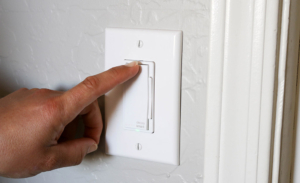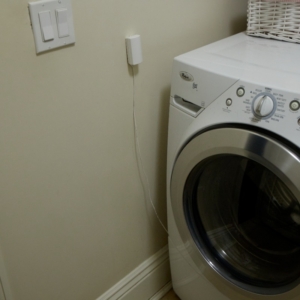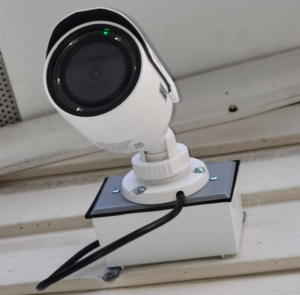Common Portland-Area Scams and How to Avoid Them
Lately, it might seem like they’re everywhere — phone scams. Email scams. Door-to-door sales scams. This feeling isn’t wrong. Reports of scams to the Federal Trade Commission have increased from 906,129 total reports in 2006 to more than 2.7 million in 2017, with a reported $905 million lost just last year. And the Portland area isn’t immune. Over the summer, our community saw a few different scams surface.
What are common Portland area scams and what can you do to avoid them? We’ve gathered a few tips on how to handle each situation.
Phone scams
In July, Portland Police warned the community of a phone scam going around where the caller claims to be an officer or government employee. The scammer says that you have missed a court date or have a warrant out for your arrest. They say that you need to pay immediately through wire transfer or a gift card (like an iTunes gift card.) It’s important to remember that Portland police doesn’t call individuals or demand money any time, under any circumstances. They don’t call seeking outstanding payments for citations or warrants.
Other scams, called grandparent scams, have been common in the area as well. This scam involves a grandparent receiving a frantic call from a “grandchild” claiming that they are in trouble – like being detained in another country or being in trouble with the law — and saying they need money through wire or gift card immediately.
What you can do if you are targeted:
- Hang up.
- Remember that you don’t have to decide or pay immediately. You can do more research and take some time to consider the offer or what the person is saying before doing anything.
- Don’t trust caller ID — scammers can fake phone numbers to make it looks like they are local or from a legitimate business or government agency.
- Know that government agencies and most businesses won’t require you to pay through a wire transfer, or to pay using re-loadable cards or gift cards.
- Awareness is important. Talk with your grandparents or parents about these kinds of scams so they know what to look for.
Email scams
We’ve all heard about them before — the dreaded phishing scams that have fooled even some of the world’s most tech savvy.
This summer, Hillsboro Police warned of an email phishing scam targeting people who receive their paychecks through direct deposit. With this scam, you would receive emails from an address that looked like your employer, asking you to enter your bank account information. Hillsboro Police encourage the community to double check in person or over the phone with their HR department if they receive an email like this, and don’t update any personal information through a similar email.
What you can do to avoid phishing scams:
- Before clicking any link or entering any information that comes from an email, double check the email address the message is coming from. Look carefully — phishers can change one character to make the address seem legitimate. Like google.com to goog1e.com.
- If the address looks okay but the language seems off, ask the person if they sent you the email. This could also give them a heads up that their account has been hacked.
What to Know About door-to-door security company scams
Although there have not been recent reports of this scam circulating in the area, security sale scams are on the rise according to a report by NBC News, so we figure this is a good reminder to all about door-to-door security scams. These scams involve a door-to-door salesperson trying to sell you a new security system, whether or not you already have a system in place. Either this, or they claim to be from your current security company and say they need to “upgrade” your system immediately, or perform maintenance work. This can lead to you being double billed, by your real alarm company and the company who scammed you. The salesperson might express the urgency behind the offer, will not have an appointment scheduled, and might try using scare tactics like citing made up statistics about the crime rate in your neighborhood.
What you can do to avoid door-to-door security sale scams:
- Ask to see a salesperson’s company ID.
- Don’t feel pressured sign on the spot. Ask for some written material to look over and for some time to review the contract before you sign.
- Request documents about the security services — they should have basic marketing material from the alarm company.
- Call your security company to check with them if they’ve sent someone to your house or area.
- Don’t let people who come for unscheduled maintenance visits inside your home. To perform any maintenance, there should always be a scheduled appointment.
About First Response
Founded in 1989 and headquartered in Beaverton, First Response Security is one of the largest privately owned security companies in Oregon. Our commitment to “A Higher Standard” enables us to deliver the client service we believe you deserve.
- Your Business Needs a Plan: Responding to Active Shooting Incidents - December 6, 2022
- Prepare Your Home Security for Back to School - August 17, 2022
- Portland Security Guards: Can A Security Guard Benefit Your Business? - August 20, 2021








 y, which can help you save on energy costs.
y, which can help you save on energy costs. Color: white with a light almond paddle included
Color: white with a light almond paddle included

 s provides the connected convenience modern lifestyles demand. The smart dimmers, switches, and outlets connect to a control panel to provide home automation from the Total Connect app, or to all popular voice assistants.
s provides the connected convenience modern lifestyles demand. The smart dimmers, switches, and outlets connect to a control panel to provide home automation from the Total Connect app, or to all popular voice assistants.




 Backlit Display: Yes (times out after 5 Minutes when AC power is lost)
Backlit Display: Yes (times out after 5 Minutes when AC power is lost) Backup Battery: 24-Hour, 7.2V, 6x600mAh, NiMH
Backup Battery: 24-Hour, 7.2V, 6x600mAh, NiMH

 Our smoke and carbon monoxide (CO) detector is a two-way, professionally monitored, wireless, combination smoke/heat and CO detector. More advanced than a standard battery-operated smoke detector, it provides true multi-threat detection and can react faster to real danger. Our combo detector also audibly announces the threat so young children and other family members know what to do.
Our smoke and carbon monoxide (CO) detector is a two-way, professionally monitored, wireless, combination smoke/heat and CO detector. More advanced than a standard battery-operated smoke detector, it provides true multi-threat detection and can react faster to real danger. Our combo detector also audibly announces the threat so young children and other family members know what to do.
 One-Go-All-Go: Yes
One-Go-All-Go: Yes
 Image Sensor Type: CMOS
Image Sensor Type: CMOS RF Frequency: 2:4 GHz
RF Frequency: 2:4 GHz